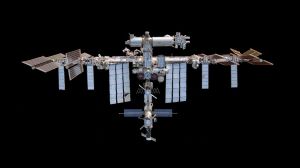Obama146;s foreign policy flop-down
I will do everything in my power to stop Iran from going nuclear,8221; thus spake Barack Obama while addressing the American Israel Public Affairs Committee...

I will do everything in my power to stop Iran from going nuclear,8221; thus spake Barack Obama while addressing the American Israel Public Affairs Committee AIPAC soon after he clinched the nomination of the Democratic Party for the US Presidency. As if his message might go unnoticed, he repeated emphatically: 8220;I will do everything in my power.8221; This was a reversal from his earlier position on Iran where he had indicated that he would be willing to sit across Mahmoud Ahmadinejad without any preconditions to sort out the diplomatic impasse between the two states. But that was when he was courting the base of the Democratic Party and differentiating himself from the more hawkish Hillary Clinton.
Obama is moving rapidly to the centre after coming out of the primaries. After changing his posture on Iran, he has also hinted at a subtle change in his new position on Iraq, suggesting that a rapid withdrawal from Iraq would not be in American interests after all. Obama is trying to sound presidential, and soon the world will find that those aspiring to the highest office in the United States cannot afford to have radical ideas on foreign policy.
The war on terror will continue with or without George W. Bush. Neither Obama nor McCain has signalled that they are in any way troubled by this never-ending war. If anything, Obama has signalled that he would be willing to reinforce US troops in Afghanistan as he, like many Democrats, thinks that unlike the war in Iraq the one against the Taliban in Afghanistan is worth fighting. And it was Obama who had argued that he would be willing to bomb Pakistan if the cooperation in the fight against extremists was not forthcoming.
With his shifting position on Iraq, Obama is also indicating that it would be difficult for a future US president to just walk away from Iraq after investing so much time and resources. The Iraq situation seems to be turning in America8217;s favour and McCain has started to taunt Obama about his desire to withdraw US troops just when the US military has begun to hope for a possible stabilisation. This has forced Obama into a corner, and he concedes that his decisions would be based on the ground situation and what the military tells him, which is not much different from what Bush has been saying all along. Obama8217;s national security credentials are weak and Americans seem to favour McCain on security issues. This will continue to keep Obama on the defensive, and all the bravado about an immediate withdrawal of troops will soon be history.
Like most states, American foreign policy has always been about American interests first. It will continue to be this way. The US has been multilateral when it could and has been unilateral when it must. Grounded in a belief in their nation8217;s historic global significance, American foreign policy-makers have always followed an expansive and aggressive foreign policy with democracy promotion at the top of their list of priorities. This is not something that George W. Bush invented. It was Bill Clinton who sent more troops to more parts of the globe than any US president since World War II. He made regime change an official policy of the US.
For all the talk of a multipolar and a 8220;post-American8221; world order, US primacy is not going anywhere in a hurry. One only has to look to Asia where the simultaneous rise of a number of major powers makes America essential to maintaining the regional balance. The Europeans need America to solve crises in their own backyard as became painfully clear in the Balkan conflicts. And the rise of Iran makes the US indispensable to the Arabs in the Middle East. And it is this pre-eminence that the next US administration will be concerned about, much like the present incumbent.
While some of Barack Obama8217;s pronouncements may have encouraged wishful thinking in some world capitals, it is the structural reality of US primacy that will shape his or McCain8217;s foreign policy. And there is little likelihood of anything significant changing in US foreign policy. Unfortunately for India, there will be significant change as the next administration will not see Indians as worth the effort for a deal as significant as the one India is on the verge of aborting. Moreover, the Democrats intend to go to back to the CTBT and FMCT framework.
Forty years after Martin Luther King was assassinated and America was riven by ethnic unrest, the country seems ready for its first black president. Obama has given a bruised country something to feel good about itself. It is certainly a high point in the American democratic experiment and a moment to savour. But it would be a folly to believe that this is a new dawn in American foreign policy.
The writer teaches at King8217;s College, London
harsh.pantkcl.ac.uk
- 01
- 02
- 03
- 04
- 05































